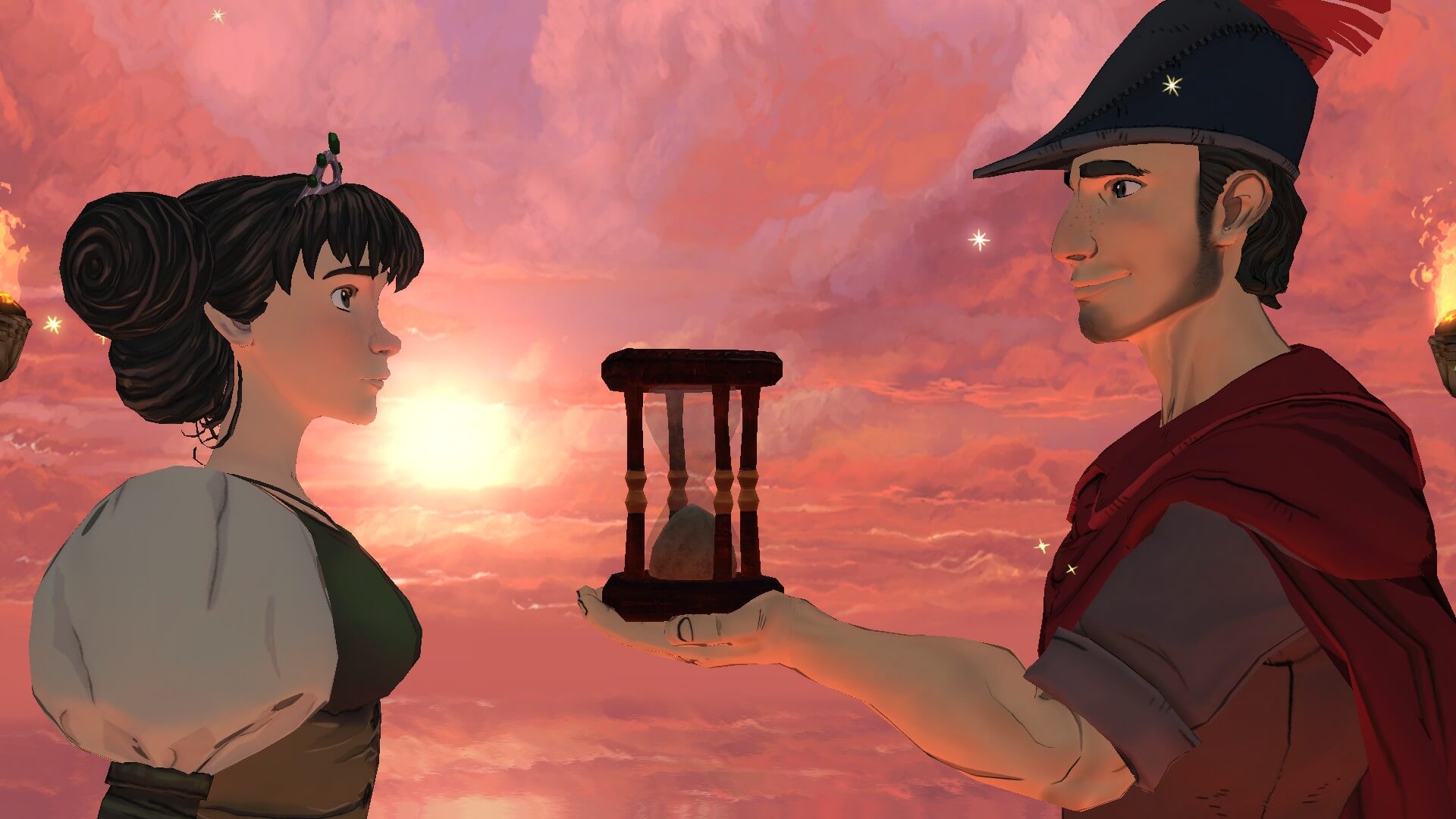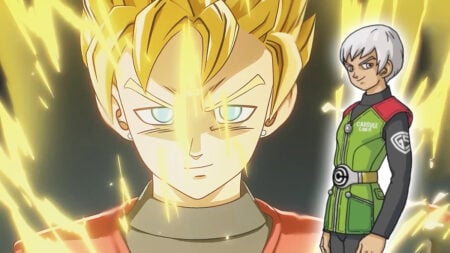Title: King’s Quest
Version Tested: PC
Available On: Windows, PlayStation 3, PlayStation 4,
Developer: The Odd Gentlemen
Publisher: Sierra Entertainment
Genre: Adventure
Official Site: sierra.com/kingsquest
Release Date: April 26, 2016
Where to Buy: Steam, PlayStation Store,
About a week ago, the third chapter of the King’s Quest reboot—pointedly titled Once Upon a Climb—hit the figurative, navy-blue shelves of Steam. Graham fans like myself, who have been eagerly awaiting the next release amidst scarce promotion by its developers, The Odd Gentleman, immediately dispensed our hard-earned IRL coins in exchange for what is, perhaps, the most story-driven episode of the King’s Quest re-imagining to date. The new installment is riddled with the kind of improvised magic we expect from the world where Daventry is allowed to exist, and the overarching narrative gave its audience a deeper look at Graham, his queen, and shiny-new, unexplored characters. However, despite its endearing and heavily comical nature, Once Upon a Climb is unarguably the laziest episode yet in terms of actual gameplay, as the whole chapter felt more like a visual novel than a real adventure game.
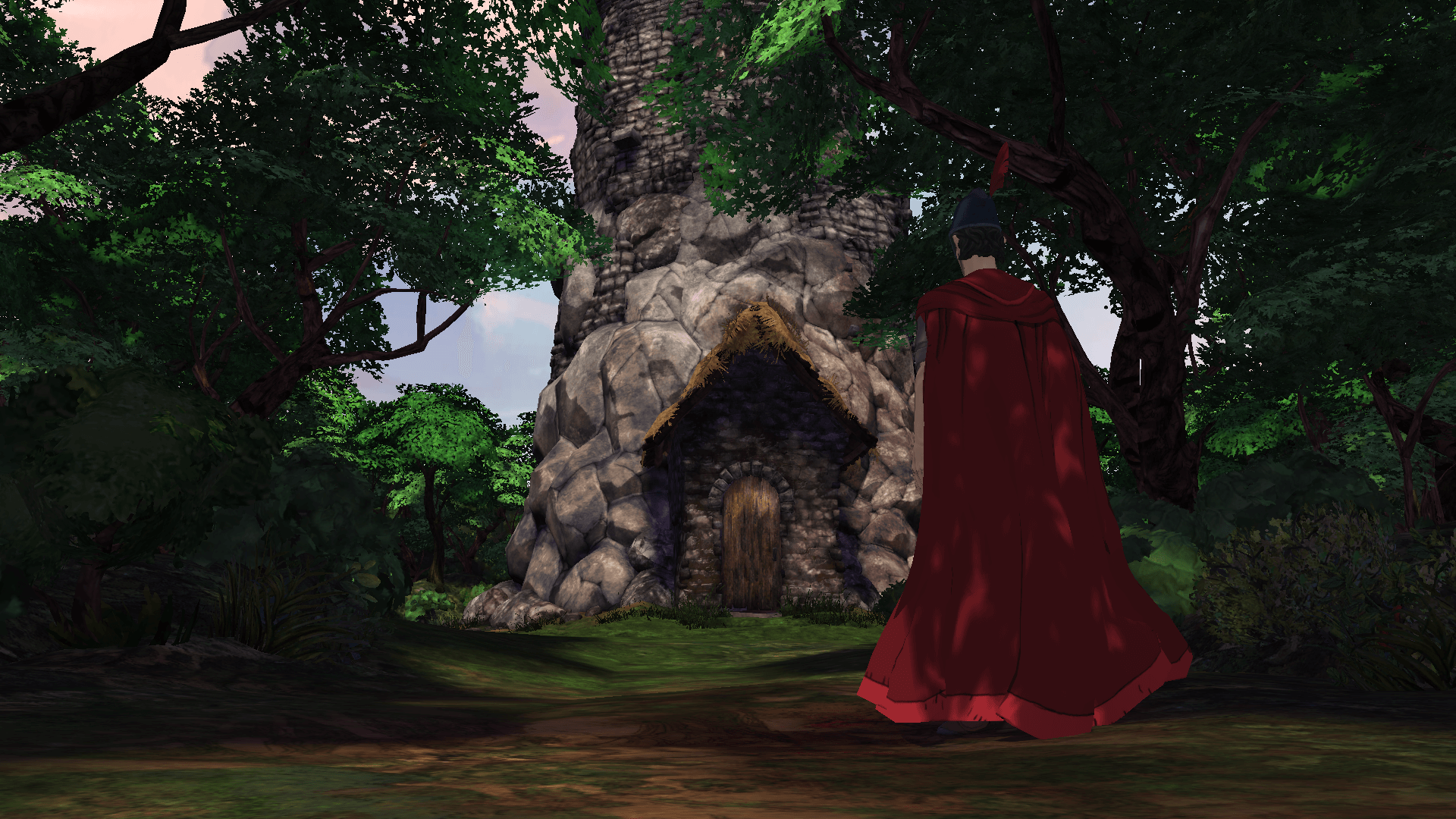
Let’s start with the story line. Our beloved protagonist has now graduated from his formerly weedy physique into a super charming and muscular hunk. Rescuing Daventry’s townspeople from the underground labyrinth of Chapter 2: Rubble Without a Cause must have done wonders for his depressed state because Once Upon a Climb opens with an extremely handsome and stoically happy, in-the-prime-of-his-life Graham. However, upon realizing he has no real friends—resorting to constructing a dinner guest out of excess food, a purple rug and a folded napkin—Graham’s magic mirror, possibly fearing for its owner’s sanity, immediately projects his next big adventure: to find his partner in life. In order to do this, our lovable protagonist must travel far and away from Daventry to rescue his future queen from an enchanted tower. Plot twist, though! When Graham finally reaches the fortress, he finds not only one but two eligible princesses. To make matters worse, the young king is now trapped in the tower himself, dedicating the remainder of the episode to devising an escape plan whilst simultaneously wooing his fellow hostages, desperate to uncover which princess is his “true love”.
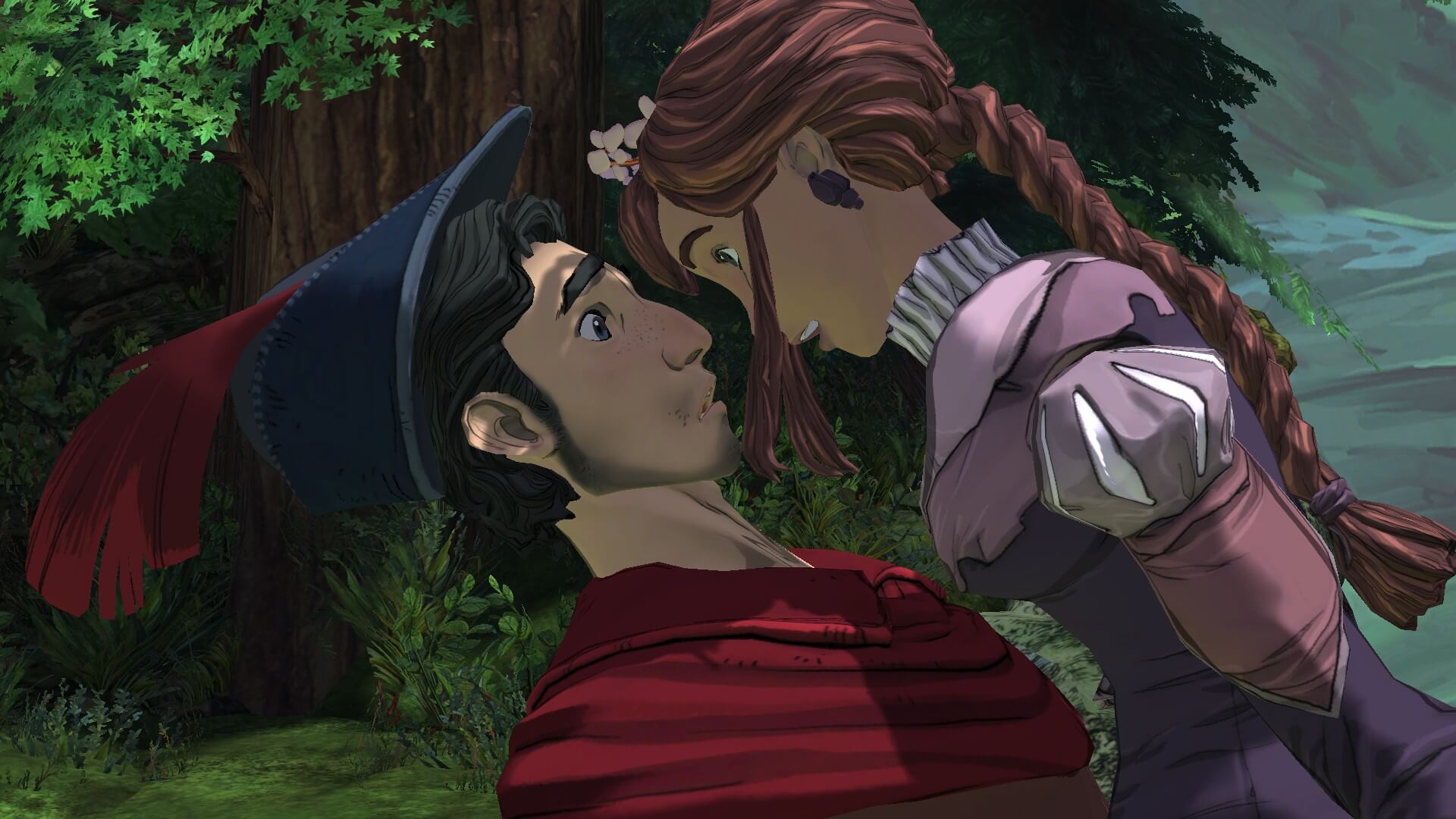
Once Upon a Climb offers many different locations, most of them within the beautiful forest that surrounds the fortress, but some recurring locations such as Daventry’s town square and the king’s throne room can be found. Much like the first chapter, entitled A Knight to Remember, the scenery is vibrantly colored and shimmering with magic—exactly what one craves from a whimsical fantasy story. And yet, despite the attempted scope of Once Upon a Climb, the episode fails to feel as “open” as its predecessors, with cut scenes dominating much of the gameplay outside the crumbling spire, and puzzles that were so easy, they toed the line of being ridiculous. Its developers spent obvious hours maturing the narrative and characters of Once Upon a Climb through its many vivacious cut scenes, but they seem to have thrown its staple supply of brain-teasers to the wolves, failing to strike a balance between story and puzzle-solving (which is, really, the whole point of adventure titles). To be honest, it felt like a children’s game as I whizzed through every puzzle with a disappointing level of ease, devoting only a few minutes to even the “toughest” dilemmas. Sometimes the King’s Quest team was too comatose to even insert a puzzle, and this resulted in awkward quick time events that held no discernible value, such as twirling Graham over and over for a painstakingly long period of time. (Really, what is the point? At least the tedious lute-strumming in Fable had an incentive.)
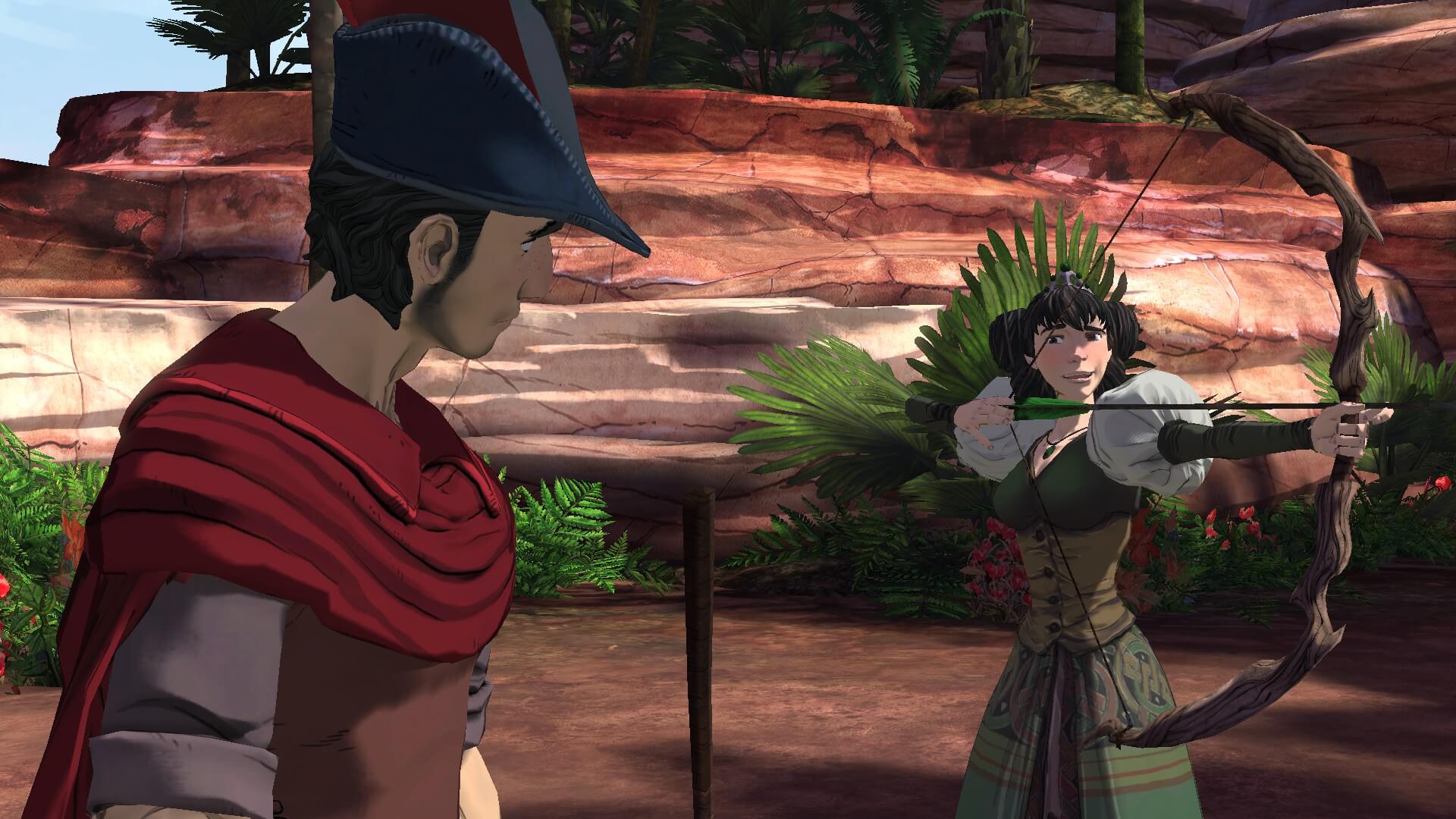
In the previous chapters, the breadth of the playable environment was large, creating enough space for challenging riddles due to the extent of exploration required. Though Once Upon a Climb leads the player through a variety of areas, it’s with the firm grip of an apprehensive mother guiding her child through a crowded street. Outside of the fortress confines, only specific scenes are designated for play, and these areas often feel like a “gift” for the player to chew on between a slew of cutscenes. A few of these cinematic breaks do serve a purpose, as their objective is to provide a great deal of foreshadowing, like the true identity of Manny, and also the portending jealousy of Gwendolyn’s cousin, Gart. But since the majority of Once Upon a Climb takes place within the tower, which equates to two (very small) locations, the main room and the villain Hagatha’s room, the whole thing feels incredibly claustrophobic. As with the previous King’s Quest chapters, I enjoyed the dynamic characters, playful humor, and slapdash magic, but the absence of creativity in its gameplay left much to desired from this third installment.
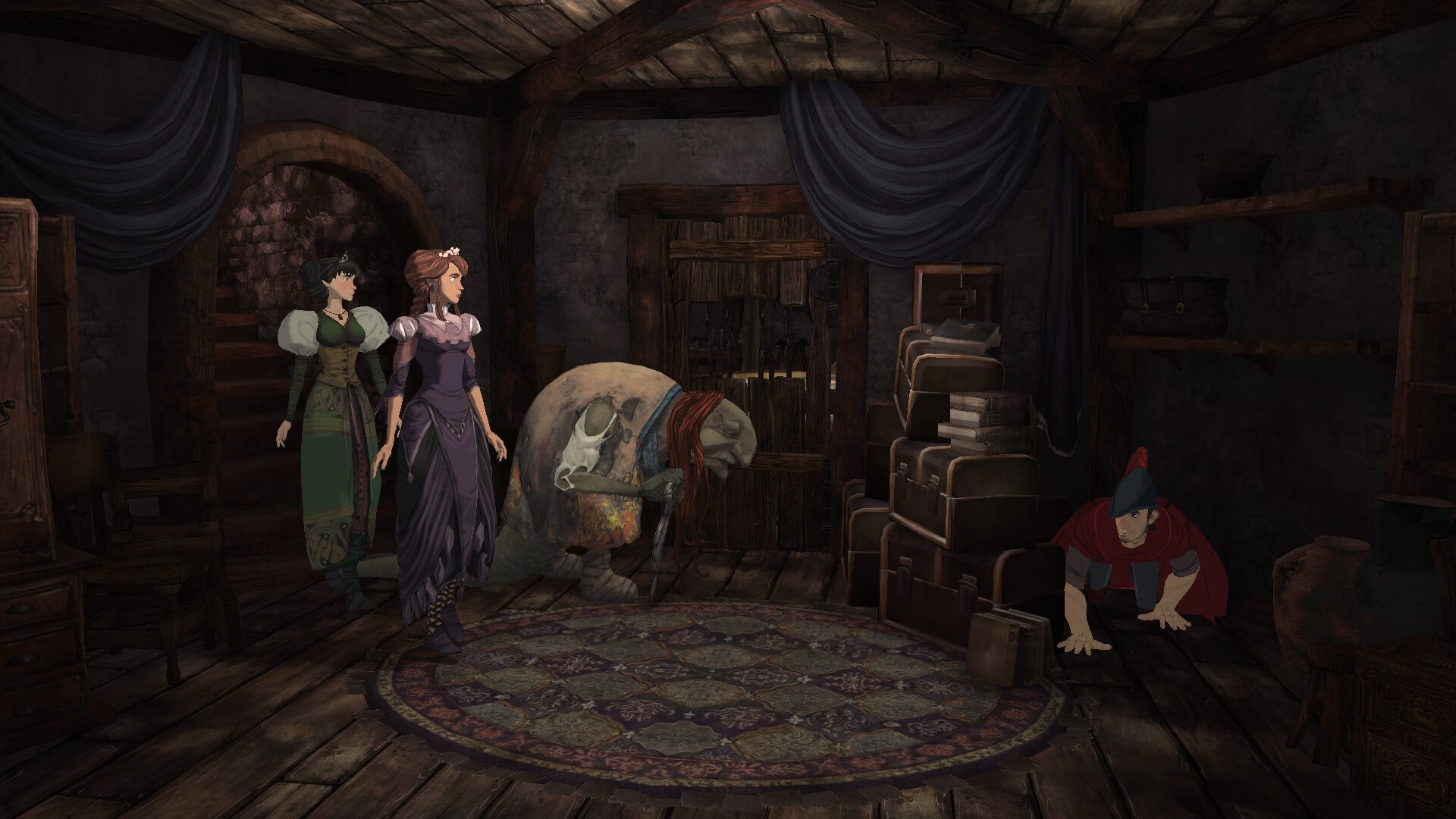
Despite its lack of ingenuity, Once Upon a Climb was still enjoyable, as it allows the player to kick back and experience a full-fledged fairy tale with minimal sweat and tears. It is certainly a poor selection for fans of difficult and/or frequent puzzle-solving—squandering only a few hours of your time in its entirety—but for casual fantasy gamers with some time to kill, the episode does make for a pleasant cinematic experience. While Once Upon a Climb wasn’t quite a “filler” episode, it wasn’t quite not a filler episode; despite this, given that Chapter 2: Rubble Without a Cause was all-puzzle-no-plot, I’m willing to forgive Once Upon a Climb and give it a rating of 3/5 stars. Moreover, I’m hoping the fourth chapter will be a healthy balance between the two game components, offering the charming wit and personality of King’s Quest and its characters, in conjunction with satisfying and challenging new puzzles to solve.
- Gameplay: Weak, lifeless and hardly challenging.
- Graphics: A painted art style that is vibrant and suitably magical.
- Sound: Whimsical and upbeat, embellishing the game’s frequent humor.
- Presentation: A quirky, cinematic experience, but one that leaves much to be desired.
[review]

